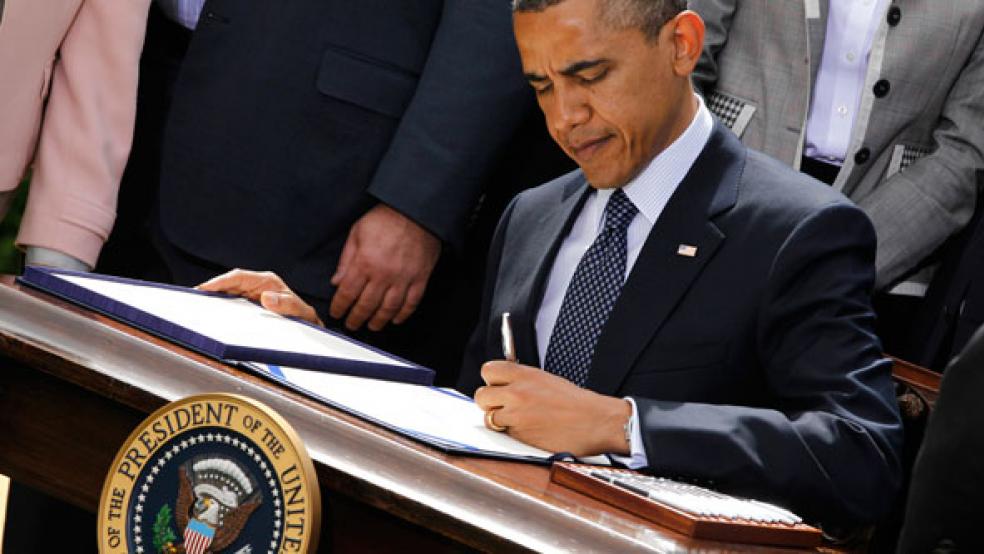If President Obama wins reelection, it will be because he has snookered the American public and outwitted the GOP. It will not be because his policies have succeeded.
As he campaigns for a second term, President Obama must convince voters that he has steered the economy in the right direction, and that his Republican rivals are to blame for our continued high unemployment.

This is his pitch, but it is dishonest, as is this line from the White House web site: “From day one, President Obama has focused on efforts that can help small businesses grow and expand.” The truth is, the president did not focus on jobs until well into his term in office. He launched the American Jobs Act – his response to our ongoing employment crisis - in September 2011. A full eighteen months earlier, in March 2010, he signed the healthcare bill that divided the country and alarmed small businesses about future hiring costs.
President Obama never expected The American Jobs Act to pass. Though it contained some proposals that had bipartisan approval, the $447 billion mini-stimulus bill also featured tax proposals and regulations that the White House knew full well would never get through the GOP led House. It was a scam – a diversion meant to flesh out the narrative that Republicans blocked the country’s progress, and to portray the president as fighting hard for our workers. A myth now debunked by Bob Woodward’s new book, The Price of Politics, that was born out of the failed debt ceiling negotiations. A myth – Blame the Republicans! -- that is central to President Obama’s campaign.
In his address to a joint session of Congress a year ago President Obama urged legislators to pass his jobs bill “right now” – repeating that demand eleven times in thirty minutes. After two and a half years in office, why the sudden rush? Because job growth was slowing and the president’s approval rating was at record lows. His rattled advisors decided that it was time the president addressed the concerns of the nation. With unemployment stuck at 9 percent, ginning up jobs was the concern of the nation.
Even as he launched the Jobs Act, White House insiders alerted reporters that they intended to use the bill’s inevitable failure to “blame Republicans for the jobs crisis.” In his speech to a joint session of Congress, President Obama said the bill contained nothing “controversial”; he also said “the American Jobs Act will not add to the deficit.” Neither was true.
The Jobs Act included, for starters, higher taxes on the wealthy and on oil companies – two moves that were dead on arrival in the House. It also required Congress to come up with additional spending cuts on top of the $1.5 trillion required of the debt ceiling agreement. That was unlikely in the extreme, since Congress had yet to actually agree on any budget cuts of substance.
The Act also included expansion of unemployment benefits. A new study from Deloitte confirms fears that doing so is counterproductive, saying “current UI policy actually keeps the unemployment rate high because it can dissuade workers from relocating and making other hard decisions when they can receive close to 50 percent of their former wage in UI benefits.” The GOP was never going to go for that.
In anticipation of the proposal, Republican House leaders sent a letter to the president asking to meet with him, in order to craft a plan that might actually have bipartisan support. At the same time, Senate Minority leader Mitch McConnell suggested, “(the president) might start working with Congress, instead of writing in secret, without any consultation with Republicans, a plan that the White House is calling bipartisan.” That request went unanswered.
Anathema to Republicans, the Jobs Act contained restrictions and rules that might make for good campaigning but that would sock it to taxpayers – such as a “buy American” clause and “prevailing wage” language that would inflate costs and pander to unions. Muddying the bill further, it included waivers in case such rules went against the “public interest.” It was, in short, vintage Obama – relying on government to get things going but including a back door exit in case of failure.
Clogging up the nation’s commercial bloodstream with inflated costs and impenetrable rules will only make us less competitive and weaker in the long run. The White House doesn’t understand that – or why offering temporary tax cuts to hire workers will fail. It also continues to pretend that only small businesses create jobs. Heads up! Half our workers are employed by big companies.
As he campaigns across the country, President Obama will argue that his efforts on behalf of working Americans have been blocked by Republicans who favor the wealthy. Voters should ask him – how would he know? When was the last time the president met with his opponents? How about his own Jobs Council? Turns out that in the first six months of this year he was too busy hosting 100 campaign events – outpacing any of his predecessors by a wide margin – to get together with the very people who are supposed to assist him with job-creating ideas. Is it any wonder that the Jobs Act fell flat? No surprise…it was intended to.






